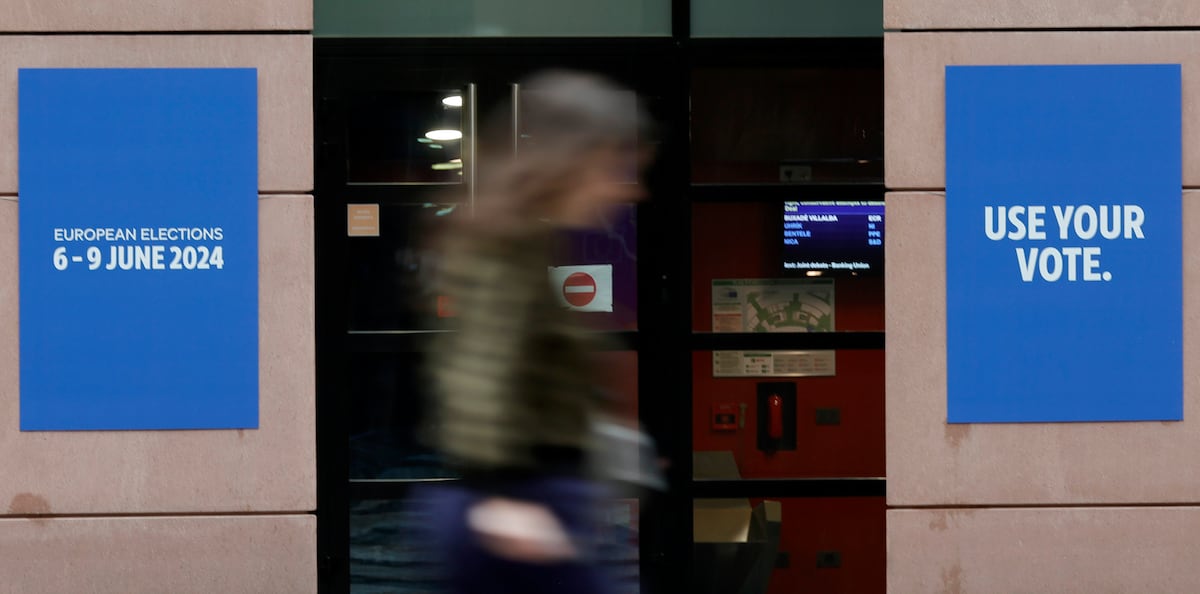This Wednesday, Belgium activated the EU crisis mechanism due to attempts at foreign interference in the European elections in June. The country, which holds the presidency of the EU Council, has launched the tool, which will coordinate the exchange of information between the 27 member states of the Union on interference in key elections. The decision, which does not mention Russia or any other country, comes after several cases of Russian espionage and after the intelligence services of several European countries uncovered that an article platform that promoted Russian propaganda paid MEPs for their “ collaborations.”
The case of the Voice of Europe network, based in Prague, which is already investigating the justice system of Belgium and the Czech Republic and which has targeted far-right legislators from Germany, France, Poland, the Netherlands and Hungary, has raised the alerts about Russia’s attempts to interfere in the elections to the European Parliament – in Spain they vote on June 9 – with hybrid warfare tools, such as espionage, disinformation campaigns and the use of agents of influence. The European Parliament votes this Thursday on a resolution calling for a thorough investigation of the case and more controls.
Several internal reports from the community institutions to which EL PAÍS has had access warn of the increase in Russian destabilizing activities to try to undermine the credibility of the EU and also to damage support for Ukraine, against which it has been at war for two years. years. The analyzes highlight how channels sympathetic to Russia and conspiratorial opinion makers put European legislation in the spotlight and amplify anti-Union narratives. Furthermore, European intelligence services warn that the Kremlin is trying to rebuild its espionage network in the EU, which has suffered several blows with the expulsions of diplomats and the sanctions derived from the war against Ukraine, according to intelligence sources.
At last week’s European Council, EU leaders warned against attempts at interference at what is also a particularly turbulent time and agreed to “thoroughly monitor and contain” the risks. At the same time, the Prime Minister of Belgium, Alexander de Croo, and the Czech Prime Minister, Peter Fiala, called on the Commission and the Council for new sanctions and measures to pursue and counteract “Russia’s evil activities” and expand the functions of prosecutors’ offices. European institutions to cover these cases, according to a letter sent to the leadership of the community institutions. The Czech Republic has already placed Voice of Europe under sanctions, which has already deactivated its website. Adding to the concerns about Russian interference are the latest cases of Chinese espionage that have involved German and Belgian deputies.
The activation of the European crisis mechanism (called IPCR), which gathers and tries to coordinate the information that comes from the Member States, the Union institutions and other key partners (also external, such as the UN and third countries), It will analyze the situation regarding foreign interference ahead of the elections and coordinate responses at the political level, explain community sources.
The tool has several levels, depending on the severity of the situation: surveillance level, information exchange level and complete phase. Belgium has activated it in information exchange mode. Spain activated it in full mode in October last year. In addition, it had already been fully launched in 2022, after the large-scale Russian invasion of Ukraine (it is still active for that matter) and in 2020, during the covid-19 pandemic.
